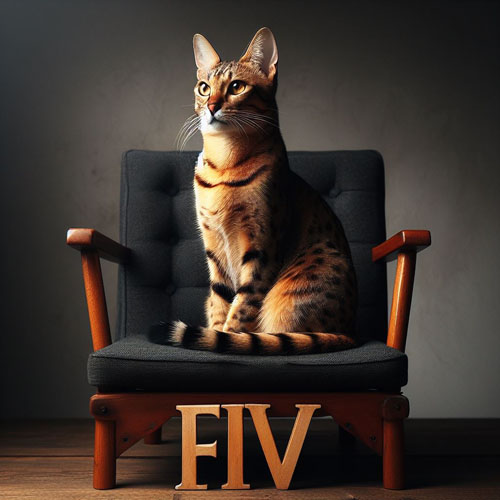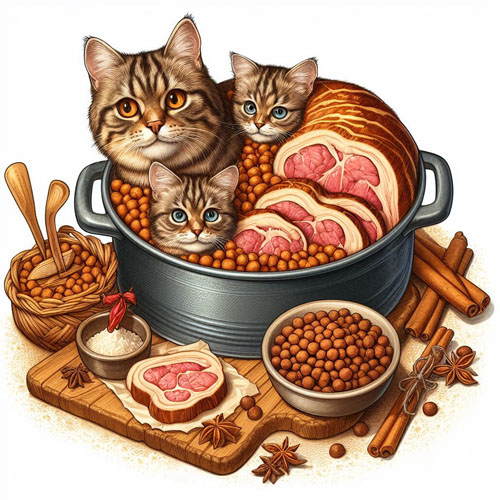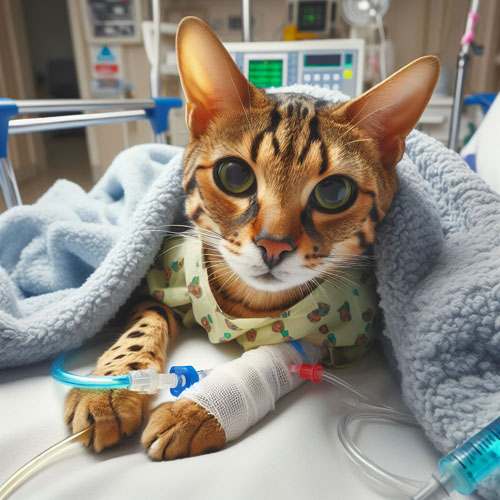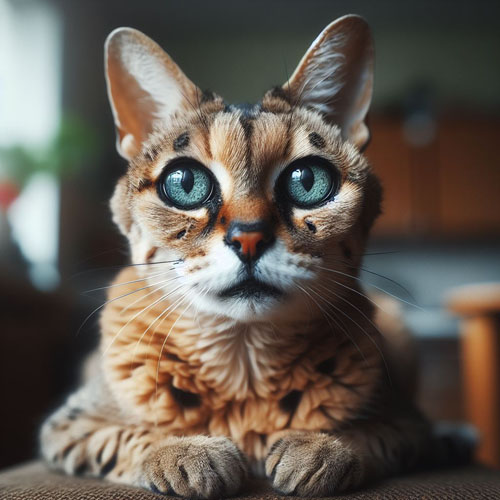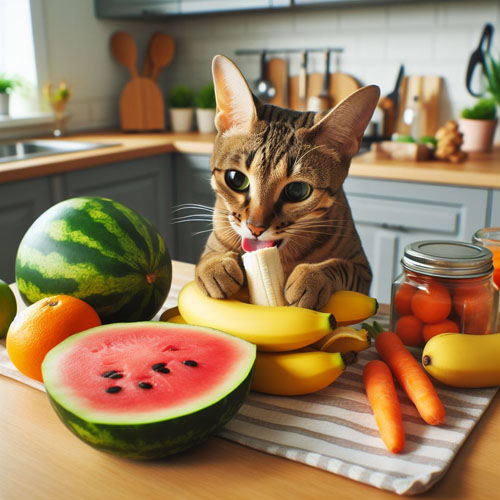Unveiling Food Intolerance And Allergies In Cats
Unveiling the Feline Culinary Conundrum: Decoding Food Intolerance vs. Allergies and Navigating the Realm of Cat Nutrition”
Cats, being discerning creatures, can face a myriad of dietary challenges that manifest as food intolerances or allergies. Distinguishing between the two is crucial for feline health, as the consequences can range from gastrointestinal distress to skin problems. In this comprehensive exploration, we delve into the intricacies of food intolerance versus allergies in cats, the symptoms, common allergens, diagnosis through elimination diets, and the role of prescription food in managing and treating feline food allergies.
Understanding the Basics: Food Intolerance vs. Allergy: Food intolerance and allergies are distinct entities, and recognizing the difference is pivotal for effective management. While food intolerance involves difficulty in digesting certain ingredients without involving the immune system, food allergies trigger an immune response, leading to a range of symptoms. Unraveling the nuances of these conditions sets the stage for providing tailored care to our feline companions.
Gastrointestinal Woes: Unraveling the Impact of Food Allergies: Food allergies in cats often manifest as gastrointestinal symptoms, disrupting their digestive harmony. Diarrhea, vomiting, and abdominal discomfort are common signs of an allergic reaction to specific food components. We explore the intricacies of how the digestive system responds to allergens and the importance of identifying and eliminating the offending elements from the feline diet.
Skin Deep: The Cutaneous Ramifications of Food Allergies: Beyond the digestive system, food allergies in cats can wreak havoc on their skin. Itchy skin, rashes, and excessive grooming are telltale signs of allergic reactions. Delve into the dermatological impact of food allergies and how they can significantly affect a cat’s overall well-being.
The Evolution of Allergies: Unveiling the Timely Development: Unlike immediate reactions seen in some allergies, food allergies in cats can take time to develop. Understanding the gradual nature of this process is essential for proactive management. We explore the factors contributing to the development of food allergies and how vigilance can play a key role in early detection.
Elimination Diets: The Gold Standard for Diagnosis: Diagnosing food allergies in cats requires a meticulous approach, and elimination diets have emerged as the gold standard. We unravel the intricacies of elimination diets, exploring how systematically removing potential allergens can help identify the specific triggers causing adverse reactions.
Prescription Food: The Diagnostic and Therapeutic Role in Feline Allergies: Hydrolyzed proteins in prescription cat food provide a breakthrough in managing and treating food allergies. We explore how these specialized diets play a dual role in diagnosing and alleviating symptoms, offering relief to cats suffering from allergic reactions.
When Nutritious Isn’t Always Best: A Cautionary Tale: Despite the emphasis on nutritious diets, not all seemingly healthy cat foods are suitable for felines with allergies. We shed light on the paradox of nutritious diets triggering adverse reactions and guide cat owners on making informed dietary choices.
Immune Reactions Unveiled: Understanding the Body’s Response to Allergens: An allergy is the body’s immune reaction to specific components in food. Delve into the intricate mechanisms of immune responses, shedding light on how the body identifies and reacts to allergens, leading to a cascade of symptoms.
Common Culprits: Beef, Fish, and Chicken as Cat Food Allergens: Certain ingredients, despite being common in cat food, are frequent allergens. Beef, fish, and chicken can trigger allergic reactions, and understanding their role in feline allergies is crucial for crafting hypoallergenic diets.
Limited Ingredients, Limited Assurance: The Myth of Hypoallergenic Claims: The term “limited-ingredient” cat foods may not always translate to hypoallergenic solutions. We unravel the misconception surrounding limited-ingredient diets and offer insights into creating truly hypoallergenic diets for cats with specific dietary requirements.
Persistence of Symptoms: The Longevity of Food Allergy Manifestations: Contrary to expectations, the symptoms of a food allergy in cats don’t vanish overnight. We explore the persistence of allergic reactions and how consistent management is key to providing long-term relief for affected felines.
Elimination Diets: Strict Adherence is Non-Negotiable: Embarking on an elimination diet requires unwavering commitment. We emphasize the necessity of following elimination diets to the letter, highlighting the importance of meticulous attention to detail for the successful management of feline food allergies.
Consult Your Veterinarian If You Suspect Your Cat Might Have a Food Allergy: If your cat experiences persistent vomiting or exhibits skin problems, especially in the head and neck area, it’s essential to discuss the possibility of food allergies with your veterinarian.
Avoid attempting to self-diagnose food allergies, as both vomiting and skin issues can be symptoms of various other conditions and diseases.
Before addressing potential food allergies, it is crucial to rule out more urgent medical problems. If your cat is displaying any of these symptoms, promptly seek advice from your veterinarian, and do not postpone professional medical care.
In conclusion, In the intricate world of feline nutrition, deciphering the complexities of food intolerance and allergies is paramount for the health and well-being of our beloved cats. By understanding the nuances of symptoms, the gradual development of allergies, and the diagnostic and therapeutic role of elimination diets, cat owners can navigate the realm of feline nutrition with knowledge and precision. Armed with insights into common allergens, prescription diets, and the persistence of symptoms, cat owners can embark on a journey to provide their feline companions with tailored, effective, and compassionate care.
The Cat Food Allergies FAQ: Navigating the Questions About Feline Nutrition: Over the years, cat lovers have raised numerous questions about cat food allergies. I will answer a few of them here:
Can Cats Be Allergic To Cat Food? Absolutely. Cats can indeed develop allergies to various ingredients in cat food, whether it’s dry kibble, wet/canned varieties, commercial raw food, or even a homemade diet. The allergic reaction can stem from a single substance or a combination of ingredients within the food.
Can My Cat Be Allergic To Turkey, Chicken, Fish, or Beef? Yes, cats can be allergic to specific proteins found in popular cat food ingredients such as turkey, chicken, fish, or beef. Whether it’s whole turkey, turkey meal, or turkey by-products, any form of these proteins can trigger an allergic reaction in cats with sensitivities.
Can A Cat Be Allergic To Organic Cat Food? Organic cat food, while often associated with healthier options, can still cause allergic reactions in cats. The term “organic” primarily refers to the farming methods used and doesn’t alter the protein composition. If a cat is allergic to a particular protein, such as chicken, choosing an organic source won’t prevent an allergic reaction.
Are All Cats Allergic To Cow Milk? While some cats may be allergic to proteins in cow milk, it is a relatively rare condition. Adult cats, however, are generally lactose-intolerant. Lactose intolerance is distinct from a food allergy, as it involves the body’s reduced ability to process lactose, a sugar present in milk.
What Is Food Allergy Dermatitis In Cats? Food allergy dermatitis in cats refers to skin inflammation caused by a food allergy. Symptoms include redness, soreness, scratching, and scabs. It is crucial for veterinarians to rule out other potential factors contributing to dermatitis, making a food allergy a prime suspect in such cases.
Can A Food Allergy Cause Scabs? Yes, a food allergy can indirectly lead to scabs on a cat’s skin. The inflammatory response associated with food allergies can make the skin itchy, prompting excessive scratching. While scratching, a cat may break the skin, resulting in tiny wounds that heal but leave behind scabs.
Should I Start My Allergic Cat On A Homemade Diet (Raw Or Cooked)? Consulting with your veterinarian is paramount before making any dietary changes for an allergic cat. Homemade diets, whether raw or cooked, can be considered under veterinary guidance. However, it’s crucial to avoid potential nutritional deficiencies that may arise, and your vet can help design a safe and balanced elimination diet.
In conclusion, navigating the realm of cat food allergies requires careful consideration and professional guidance. Understanding the nature of allergies, the specific triggers, and the importance of veterinary consultation ensures that cat owners can make informed decisions about their feline companion’s diet, promoting both health and well-being.
Keywords: Feline Food Allergies, Elimination Diet, Hydrolyzed Proteins, Cat Nutrition, Gastrointestinal Symptoms
